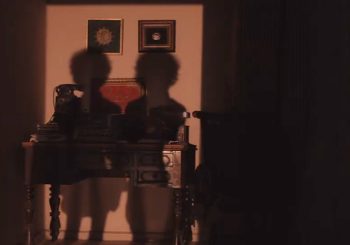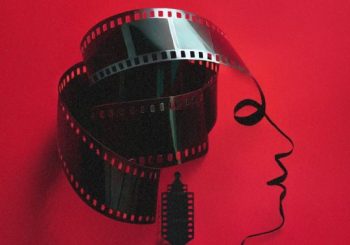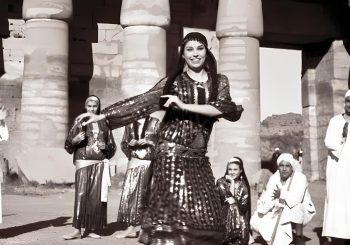The world knows of Tom Cruise’s ‘Rain Main’ (1988) and Sean Paul’s ‘I Am Sam’ (2001) — important and critically acclaimed films that have illuminated the intricate facets of autism. Yet, in the Arab world, there hasn’t been enough light shone on autism, except for the notable Egyptian film El-Torbini (2007) which is based on the American film Rain Man.
Then comes Hala Khasa (Special Case), streaming platform WATCH IT’s newest hit series which premiered on 3 January. Directed by Abdel Aziz El Nagar and penned by Mohab Tarik, Hala Khasa brings to the Arab world not just a mere story, but a vessel through which autism is explored with authenticity and sensitivity. The show stars Ghada Adel and Taha Dessouky, alongside a diverse range of stars including Hagar El Sarrag, Hassan Abouelrouss, Ahmed El Azaar, Ahmed Tarek, and Nabil Ali Maher.
In my opinion, Hala Khasa is a groundbreaking exploration of the human experience. It is a must-watch because, besides the compelling cast and storyline, this show is bridging gaps and correcting misunderstandings when it comes to autism.
Note: Stop reading here if you want to avoid spoilers. The below discusses key plot points of the series.
The Story: How to Get Away with Murder
Amani El-Naggar (played by Ghada Adel) is the biggest lawyer in Egypt — and working at her office is every lawyer’s dream. When her team holds interviews for training vacancies, Nadim (played by Taha Dessouky) goes in and impresses them with his knowledge, intelligence, and wittiness. Yet, Amani is reluctant to hire him for reasons still unclear to the viewers at first glance.
However, amid a hearing, Nadim sweeps in and hands Amani a paper with the solution — and is shortly hired after that. He joins the team of five trainees, who are tasked with coming up with solutions to the difficult cases that are brought to Amani’s office.
As a person on the autism spectrum, Dessouky skillfully portrays the struggles that autistic individuals often face — from preconceived misconceptions to bullying. His teammates label him as the smart guy who solves all of Amani’s cases, except for Ramallah (played by Hagar El Sarrag) who wants to get to know Nadim for who he is.
By pure chance, Ramallah goes to a bookstore called Maktabet El Asde’qa’ (Friends’ Bookstore) where she meets Aam (Uncle) Gamil (played by Nabil Ali Maher), and there she finds Nadim. We learn of Gamil and Nadim’s pure friendship — and equally learn from it. Aam Gamil is Nadim’s only friend — he helps him in the bookstore and goes to him for brotherly and fatherly advice.
Throughout the episodes, we see the competition between the trainees rise, as only two of the five will be selected to continue working with Amani. Without showing favoritism, we can see that Amani understands Nadim — she extends kindness and empathy to him that is almost familiar. Until we learn that Amani has an autistic son, so she sees him in Nadim.
Many plotlines happened in Amani’s office, from risky relationships to lying and deception. Ramallah and Nadim develop a pure friendship, and his kind-heartedness and love for her make him agree to ‘temporarily’ marry her because she doesn’t have valid Egyptian papers to stay in the country. Ramallah appears not to be the purest person — having been in a secret relationship with Amani’s husband — her relationship with Nadim has always been different. Although they agree to divorce after a while, Ramallah and Nadim decide to continue in their marriage because they love each other.
One of the ways Ramallah showed that her love for Nadim is pure was when Ahmed Tarek asked her “You’re going to marry Nadim? You’re gonna end up with someone who has autism?” and she simply replied with, “And what’s wrong exactly with Nadim?” showing that her love to him knows no bounds or judgment.
Nadim also really began developing feelings for Ramallah when he saw how she stuck with him when his only dear friend Aam Gamil passed away ( a real tear-jerker, stock up on tissues).
At the end of the series, Amani has to choose two of the five trainees to continue working full-time with her; however, Nadim is almost certain that he won’t choose him — despite being the smartest in the room. He ends up being right — Amani does not choose him, but not because of his incompetence in working with her. Rather, she knows he is too big to be just an attorney at her firm — she wants him to fly his wings so he can reach his aspirations, and he ends up opening his law firm.
The Watching Experience: A Million Genres, A Million Feelings
At first glance, I was worried that the impeccable comedian Taha Dessouky would star in a drama because there are very few actors who have the range to master different genres. However, Taha Dessouky was the biggest surprise of this show — delivering a masterful performance that will put him on the map and open several doors as a leading man in the future.
This brings me to my second observation, Hala Khasa, albeit a show that discusses imperative issues, also blends in comedy and suspense. There are scenes where viewers are laughing because of Hassan Abouelrouss’ silliness with his crush Weam Magdy, while there are other scenes where the suspense is pounding, as seen in the crime-solving cases and court scenes. Yet beyond the laughs and thrills, Hala Khasa does not steer away from its core: a show that discusses an issue that is prevalent in society and often overshadowed by misconceptions and judgments.
One of the most beautiful aspects of the show was reviving the iconic 1970s Egyptian band Al-Masreyeen (The Egyptians). The band was founded by the legendary music pioneer Hany Shenouda, which he resurrected for the series, integrating into it as a defining element. Throughout the series, we see Nadim wearing his headphones, immersing himself in Al-Masreyeen’s nostalgic melodies — a connection that traces back to his late mother, who introduced him to the band. Several songs are introduced throughout the series, such as Awqat Ashouf Malamhak (Sometimes I See Your Face), Hezeny (My Sadness), and Mafatshi Leh (Why Didn’t He Pass By) — paying homage to the past and transcending bridges of time.
Perhaps one of the things I would want to change about the series is it only has 10 episodes. Although there are varying shows that need to be mini-series, there are others that need the extension of a 30-episode series to not feel like certain details are being crammed to finish the show. However, this does beg the question of whether there will be a second season for the show. Will viewers get to see Nadim excel at his law firm? Is he and Ramallah still married? I guess we will have to wait for the announcement.
A note to the showrunners that needs to be applauded is their careful attention not to exaggerate autism. Rather, to authentically portray autistic individuals, they brought on autistic children and youth so they could better understand the aspects of autism. The showrunners also brought on Abdullah Ashraf, who is the driving force behind Nadim’s character and the entire series. Ashraf — who works as a video editor at WATCH IT — played a critical role in the success of the series as he served as a consultant to Dessouky through filming: bringing his unique perspective and experience as a person living with autism.
Overall, Hala Khasa was meticulously curated —a show that paid attention to the smallest details to steer away from any exaggeration or misconceptions when it comes to a widely misunderstood topic such as autism. There is no doubt that this show will open conversations about autism as well as tackle preconceived misconceptions in Egypt and the Arab world.






Comment (1)
[…] Read More […]